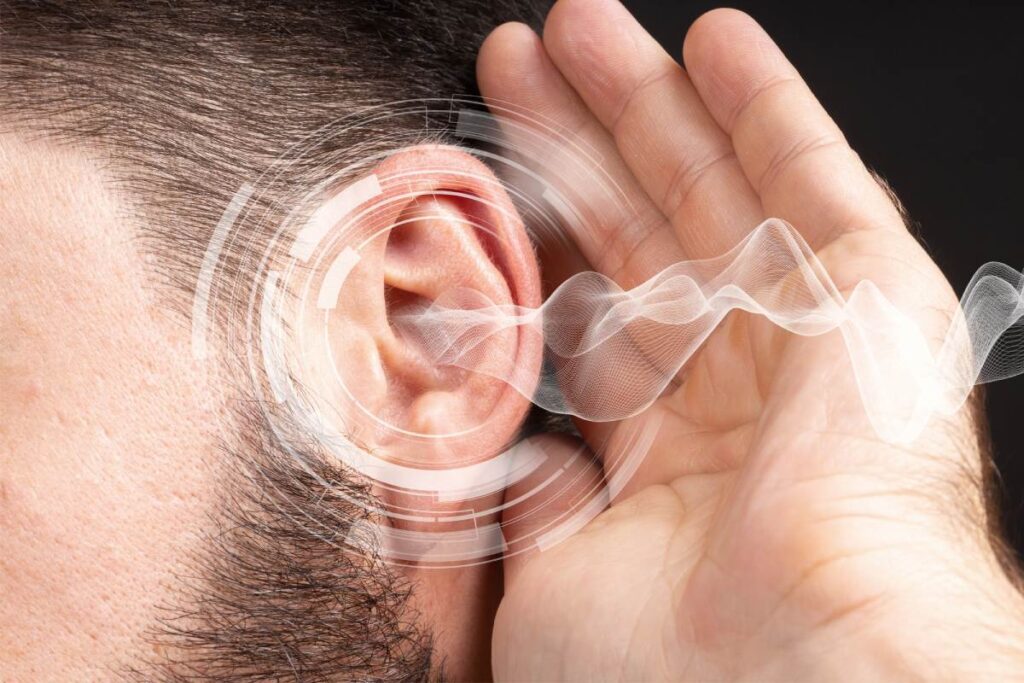Last Updated on 3 years ago by Nicky Johnson
Hearing aids come in various forms and are custom-applied by professional hearing aid dispensers. The most common types of hearing aids are external, single-ear, and digital.
Each type of device has its advantages and disadvantages, so it is essential to know what you’re dealing with before making a choice.
It is also important to know how much hearing aids cost. There are four types of hearing aids: digital, multidirectional, invisible, and bone conduction.

Digital Hearing Aids
Blog Contents
These are digital devices worn in the ears to improve the quality and clarity of sound. They are used for various conditions, including high-frequency hearing loss, tinnitus, and conductive or mixed-form losses that go along with many diseases like
Meniere’s disease and vascular and central nervous system disorders. Digital hearing aids are typically wired or wireless mics that sit inside the ear canal and can amplify (boosting) and correct the individual’s cochlea.
Multi-Directional Hearing Aids
Many people use multidirectional hearing aids. There are two parts to a multidirectional hearing aid: the directional microphone, which directs sound toward a user, and the signal processor.
The directional microphone captures sound in both ears; the signal processor processes it, turns it into words or music and sends it to the receiver.
When a user holds up one or both hands or tilts their head sideways or forwards, this will affect how the directional microphone captures the sound coming from that direction.
Invisible Hearing Aids
Invisible hearing aids are an excellent option for people who struggle to hear in noisy environments. They can be used without any visible components, which makes them perfect for discreet situations.
These hearing aids are made from lightweight materials that don’t add bulk to the wearer’s ears. They also come with a wide range of features, including:
- Speech enhancement (to improve speech reception)
- Noise reduction (to reduce background noise)
- Volume control (so you can adjust the volume of your sound)
There are several options available for invisible hearing aids. The most common type is a cochlear implant system, which uses electrical impulses to stimulate the inner ear and restore hearing.
Cochlear implants are currently used in people with profound hearing loss but can also be used for mild to moderate hearing loss.
Bone Conduction Hearing Aids
Bone conduction hearing aids use a special microphone that picks up sound vibrations and transmits them to an ear canal.
This hearing aid type does not involve mechanical parts and is more efficient than conventional models.
Bone conduction hearing aids are typically used by people with mild to moderate hearing loss. They are also effective for people with mild tinnitus but do not work as well as traditional models.
Bone conduction hearing aids are often used with other options, such as cochlear implants or bionic ears. A medical professional will determine which option is most appropriate for you based on your condition and hearing loss severity.
How Should Hearing Aid Be Cared For?
The hearing aid’s lifespan will be increased with proper upkeep and care. Create a habit of:
- Keeping heat and moisture away from your hearing aid
Keeping hearing aids clean as directed. A hearing aid can be harmed by earwax and ear discharge.
When wearing hearing aids, avoid using hairspray or other styling treatment
When not in use, turn off your hearing aids.
Dead Batteries Must Be Replaced Right Away
Keeping tiny tools and spare batteries out of the reach of kids and animals. Hearing aids are not a one-size-fits-all solution for everyone.
For example, some people do not require assistance with hearing, while others may need it to function at their best.
The best thing to do is consult with an audiologist and find out what assistance one would benefit from.







